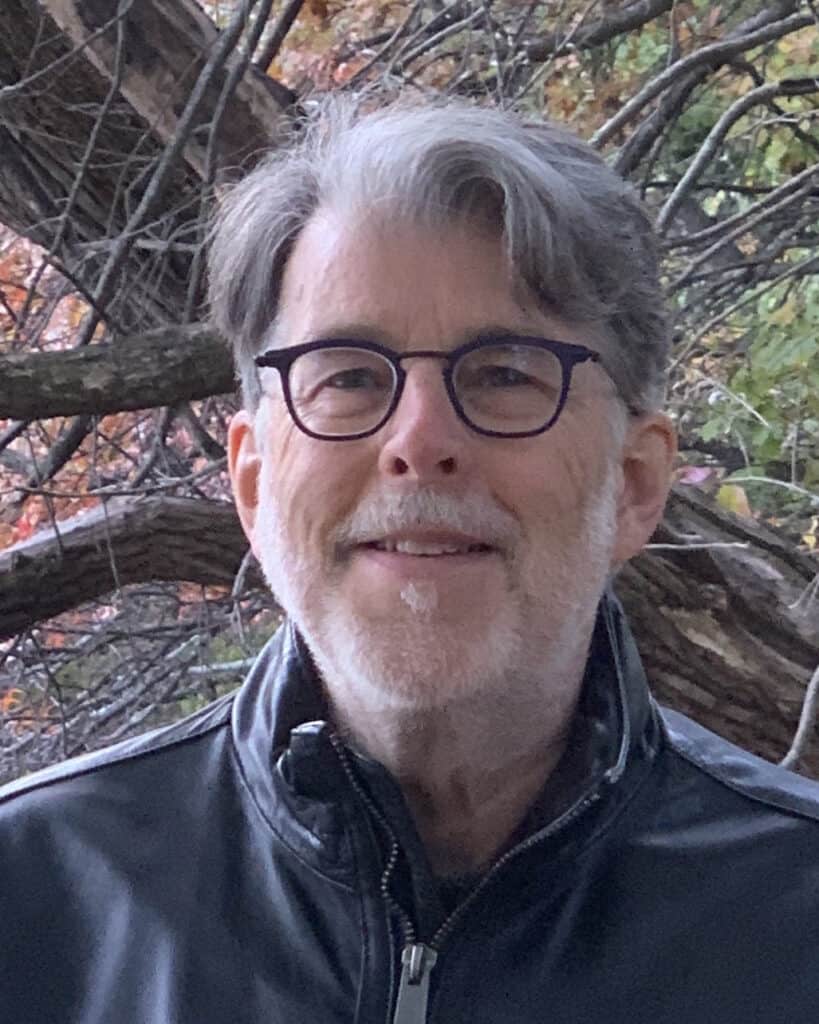Monday, May 22, 2023, 12:30 – 2:00 pm, Talk Room 2
The Vision Sciences Society is honored to present William H. (Bill) Warren with the 2023 Ken Nakayama Medal for Excellence in Vision Science.
The Ken Nakayama Medal is in honor of Professor Ken Nakayama’s contributions to the Vision Sciences Society, as well as his innovations and excellence in the domain of vision sciences.
The winner of the Ken Nakayama Medal receives this honor for high-impact work that has made a lasting contribution in vision science in the broadest sense. The nature of this work can be fundamental, clinical or applied.

William H. (Bill) Warren
Chancellor’s Professor, Brown University
Bill Warren received his B.A. in 1976 from Hampshire College concentrating in Psychology, Biology and Philosophy and a Ph.D. in 1982 from the University of Connecticut in Experimental Psychology with Robert Shaw and Michael Turvey. Following a brief post-doctoral stint at the University of Edinburgh with David Lee, he became faculty at Brown University, where he is now Chancellor’s Professor in the Department of Cognitive, Linguistic and Psychological Sciences. In 1998, he founded the Virtual Environment Navigation Lab (VENLab) to study perception and action, well before the recent adoption of virtual reality techniques in research.
Bill Warren has broadened the view of vision at VSS to include many questions about how vision guides people’s interactions with the real and virtual world, which is obviously what vision is really for. His work has revealed how people use vision to perceive their environment, as well as how they subsequently control their actions. The former involves demonstrating people’s proficiency at judging affordances, surface layout, and self-motion. The latter involves demonstrating how adaptive behavior emerges from the dynamic interaction between an organism and its environment. Bill has examined all this in a rigorous manner for a wide variety of topics such as judging whether one can step onto or pass between surfaces, judging where one is heading on the basis of the optic flow, controlling locomotion between obstacles, towards targets, and in large crowds, and navigating over longer distances. He has collaborated with movement scientists on visual-motor coordination, with biologists on insect flight control, with computer scientists on collective crowd dynamics, and with safety researchers on emergency evacuation. He has consistently combined experimental, computational and theoretical analyses of the problems he has tackled, often exposing implicit assumptions that others are making. Finally, he used mobile virtual reality — long before it became popular and accessible — to conduct ground-breaking experiments on how walking subjects use visual information to guide naturalistic behavior in controlled settings. Building on the theoretical insights of James Gibson, he has introduced the VSS community to a new way of considering vision. His work has been instrumental in defining the field that we know as Perception and Action.
Bill is the recipient of a Fulbright Research Fellowship, Brown’s Teaching Award for Excellence in the Life Sciences, and is an elected Fellow of the Society of Experimental Psychologists. He has been Professeur Invité at the University of Paris Orsay and the University of Aix-Marseille, and is currently President of the International Society for Ecological Psychology.
